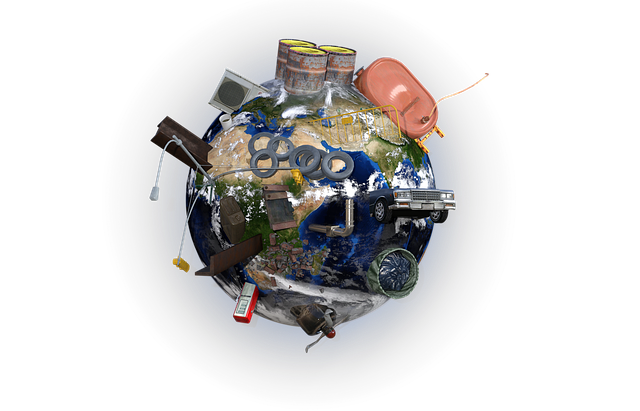The UK's strict Environmental Impact Assessment (EIA) regulations demand comprehensive evaluations of ecological, air quality, water, noise, and cultural impacts. Professional translation services are vital for non-native speakers to navigate these standards accurately, ensuring compliance, transparency, and public trust. High-quality translations require expertise in both languages and environmental science, leveraging advanced digital tools post-Brexit to maintain evolving assessment standards globally. Choosing specialized providers with rigorous quality control ensures precise conveyance of complex ecological and regulatory information, crucial for sustainable development practices.
Ensuring your environmental impact assessments meet UK standards is paramount for project approval and sustainability. This comprehensive guide explores the intricate world of UK environmental regulations and their translation requirements. From understanding key laws to navigating complex terminologies, we delve into best practices for accurate translations. Discover the critical role of language service providers in facilitating compliance, addressing challenges, and exploring successful case studies. Learn how to choose the right expert and stay ahead with future trends in this vital process.
- Understanding UK Environmental Impact Assessment Regulations
- The Role of Translation Services in Ensuring Compliance
- Key Considerations for Accurate Translation
- Common Challenges in Translating Environmental Assessments
- Best Practices for High-Quality Translation
- Choosing the Right Language Service Provider
- Case Studies: Successful Translations in Action
- Future Trends in UK Environmental Assessment Translation
- Conclusion: Ensuring Your Assessments Meet Standards
Understanding UK Environmental Impact Assessment Regulations

The UK has stringent Environmental Impact Assessment (EIA) regulations in place to ensure that development projects consider and mitigate their environmental impacts. These regulations are designed to protect the country’s rich natural heritage, promote sustainable development, and involve the public in decision-making processes. Understanding these rules is paramount for anyone involved in translation services for UK Environmental Impact Assessments.
The EIA process requires thorough assessments of a project’s potential effects on various aspects of the environment, including ecological systems, air quality, water resources, noise pollution, and cultural heritage. Developers must demonstrate that they have considered these factors and implemented measures to minimise any adverse impacts. Compliance with UK standards not only ensures legal requirements are met but also fosters transparency and builds trust between developers, regulators, and local communities.
The Role of Translation Services in Ensuring Compliance

In the realm of UK environmental assessments, precision and clarity are paramount to ensure compliance with stringent regulations. This is where translation services play a pivotal role. With the growing complexity of global projects, accurate translation ensures that all documents, from impact assessments to ecological reports, convey the intended information seamlessly. Professional translators bring expertise in environmental terminology, enabling them to navigate the nuances of ecological studies and legal requirements.
Translation services for UK Environmental Impact Assessments are not just about converting words from one language to another; they involve a deep understanding of the local context and regulations. These services facilitate effective communication between project developers, regulators, and stakeholders, ensuring that every aspect of an assessment is meticulously evaluated and documented according to UK standards.
Key Considerations for Accurate Translation

When it comes to environmental impact assessments, accuracy is paramount. One crucial consideration for ensuring compliance with UK standards is the quality of translation services. Inaccurate translations can lead to misinterpretations and potential legal issues. Therefore, selecting professional translation services specialised in environmental documents is essential. These experts not only possess the linguistic proficiency but also a deep understanding of environmental terminology to deliver precise translations.
The process should involve thorough research into the target audience’s cultural nuances and regulatory requirements. Reputable translation companies often employ native speakers and industry specialists to guarantee that technical terms are conveyed accurately, maintaining the integrity of the original assessment. By opting for these services, you ensure that your environmental impact assessments meet the rigorous standards set by the UK regulations, fostering a sustainable and responsible approach to development.
Common Challenges in Translating Environmental Assessments

Environmental assessments are a critical component of ensuring sustainable development, but translating these documents to meet UK standards can present several challenges. One significant hurdle is the nuanced nature of environmental regulations and terminology across different regions. What may be considered an acceptable impact in one country might be strictly regulated or even prohibited in another, especially within the stringent framework of the UK. Therefore, relying solely on machine translation tools for translation services for UK Environmental Impact Assessments can lead to misinterpretations and inaccuracies.
Another challenge lies in the complex scientific and technical language often employed in these assessments. Accurately conveying ecological, chemical, and biological terms requires specialized knowledge and expertise. Insufficient understanding of these concepts may result in vague or incorrect translations, potentially misleading stakeholders and decision-makers. To overcome these challenges, organizations should seek professional translation services that specialize in environmental documents, ensuring compliance with UK standards while maintaining the integrity of the original content.
Best Practices for High-Quality Translation

When it comes to Translation services for UK Environmental Impact Assessments, best practices demand precision and accuracy. The complexity of environmental language, coupled with regulatory nuances, necessitates skilled translators who understand not just words but also the intricate context. High-quality translations ensure that assessments remain compliant with UK standards, facilitating efficient decision-making processes.
Adhering to these best practices involves rigorous quality control measures. This includes thorough proofreading, peer review, and native speaker validation. Using specialized glossaries and databases ensures consistency in terminology, while staying abreast of regulatory updates guarantees accurate reflection of the latest guidelines. The result is a seamless communication of environmental data, accessible and understandable for stakeholders across various sectors.
Choosing the Right Language Service Provider

Choosing the right language service provider is a critical step in ensuring your UK Environmental Impact Assessments (EIA) meet the highest standards. With stringent regulations and complex terminology, precision and accuracy are non-negotiable. Opting for a specialist translation service with deep knowledge of both environmental science and legal jargon is essential to avoid costly mistakes. Look for providers who have experience handling EIA documents and can guarantee confidentiality and data security.
When selecting a translator, verify their qualifications, industry accreditations, and client testimonials. Reputable services will employ native-speaking professionals who understand the nuances of language and environmental terminology. They should also be adept at navigating the UK’s specific regulatory landscape, ensuring your assessments are compliant and effectively communicated in all languages required.
Case Studies: Successful Translations in Action

Successful case studies demonstrate the critical role translation services play in ensuring environmental impact assessments (EIA) meet stringent UK standards. Many international companies, operating across diverse sectors like energy, infrastructure, and manufacturing, have benefited from professional translation to navigate complex regulatory landscapes. These translations are not merely word-for-word substitutions; they demand a deep understanding of both the source and target languages, along with expertise in environmental science and policy.
By leveraging translation services for UK Environmental Impact Assessments, companies can avoid costly mistakes, ensure compliance, and demonstrate their commitment to sustainable practices. Well-executed translations reflect accurately the original assessment’s scope, methodology, and findings, fostering transparency and public trust. This is particularly crucial when engaging with local communities and stakeholders who may have specific linguistic and cultural needs, ensuring effective communication of potential environmental impacts and mitigation strategies.
Future Trends in UK Environmental Assessment Translation

The future of UK environmental assessments is poised for significant evolution, driven by technological advancements and a growing emphasis on sustainability. Translation services for UK Environmental Impact Assessments (EIA) are at the forefront of this change. With digital tools becoming more sophisticated, the process of translating EIAs can be streamlined, ensuring consistency across languages while maintaining regulatory compliance. Artificial Intelligence (AI) and machine learning algorithms can play a pivotal role in automating repetitive tasks, enhancing accuracy, and reducing turnaround times. This technological edge will enable environmental consultants to focus on nuanced aspects of assessment, fostering more comprehensive and effective impact analyses.
Moreover, as the UK navigates its post-Brexit landscape, there’s an opportunity for translation services to adapt and offer specialized knowledge in regulatory language and terminology. This is crucial for ensuring that environmental assessments align with evolving standards and policies. The demand for precise and culturally sensitive translations will continue to grow, requiring professionals to stay abreast of industry trends and developments. By embracing these future trends, the UK can maintain its high environmental assessment standards while fostering efficient communication both domestically and internationally.
Conclusion: Ensuring Your Assessments Meet Standards

In ensuring your environmental assessments meet UK standards, it’s crucial to engage professional and experienced translators who understand the intricate nuances of both language and legislation. Translation services for UK Environmental Impact Assessments play a vital role in facilitating accurate and compliant communication throughout the process. These services not only bridge the linguistic gap but also help navigate complex environmental regulations, ensuring your assessments are comprehensive and up to par with the highest industry standards.
By leveraging professional translation, you can avoid costly mistakes, reduce the risk of non-compliance, and streamline the overall assessment process. This is particularly important given the UK’s stringent environmental protection laws and the potential consequences of falling short. Therefore, when conducting or reviewing environmental impact assessments, remember that quality translation services are not just an add-on but a critical component for achieving excellence and meeting UK standards.
In ensuring your environmental impact assessments meet stringent UK standards, leveraging translation services that specialize in this domain is paramount. By addressing key considerations, overcoming common challenges, and adopting best practices, you can achieve high-quality translations that accurately convey critical information. Choosing the right language service provider, as highlighted in our case studies, is a strategic move to ensure your assessments not only comply with regulations but also maintain their integrity and effectiveness. As we look ahead, future trends in UK environmental assessment translation promise enhanced efficiency and precision, underpinned by technological advancements and an evolving industry landscape.
